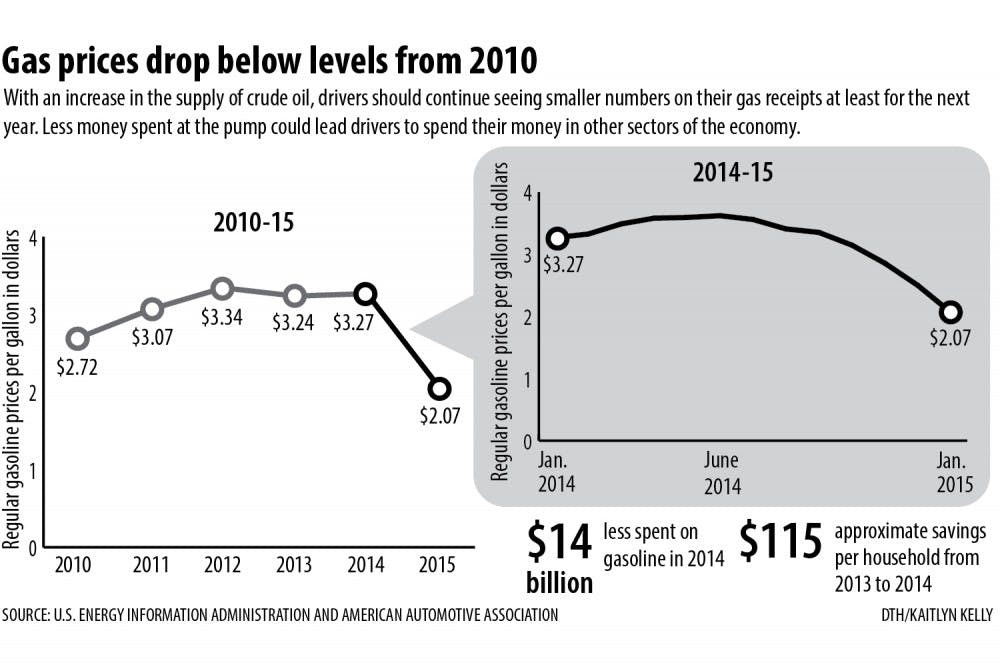Conway said the report’s prediction is probably accurate, and the prices will remain low as long as no surprises occur in the world market.
The current prices will help the economy as well, Conway said, because consumers can spend less on gas and spend more on other products.
“This will stimulate output in other sectors of the economy, although I don’t believe that this effect will be large,” he said.
Freshman Lucas Bouknight is seeing economic benefits in his everyday purchases.
“I think it’s great how low (gas prices) are. It’s the lowest it’s been in five years, and it’s not only helpful to us when we’re buying gas, but it’s also helpful in lowering the price of everything we buy,” Bouknight said.
Despite the positive trend, freshman Jeremiah Hartsock is still skeptical.
“It’s pretty impressive that we’re going to have cheap gas for a whole year,” he said. “But I would be surprised if it lasts.”
North Carolina raised the tax on gas from 36.5 cents per gallon in 2014 to 37.5 cents per gallon, effective Jan. 1 to June 30, 2015.
Bouknight accepted the tax because he thinks it will probably keep the prices down and cheaper for students.
“We probably shouldn’t mind it as much as we do,” he said.
But helping the economy isn’t the only benefit of low gas prices. Freshman Margaret McAllister said they are helping her visit family more.
“Traveling expense went down by half, so instead of $100 to go home now its only $50, so I’ll probably go home more,” she said.
To get the day's news and headlines in your inbox each morning, sign up for our email newsletters.
Conway said although the prices are cheaper because of supply is greater than demand, the creation of cars with better gas mileage will have a balancing effect.
“Because of the conservation techniques and technological improvements that we’ll be making, I think we will use just about the same amount of gas as previous years,” he said.
state@dailytarheel.com




